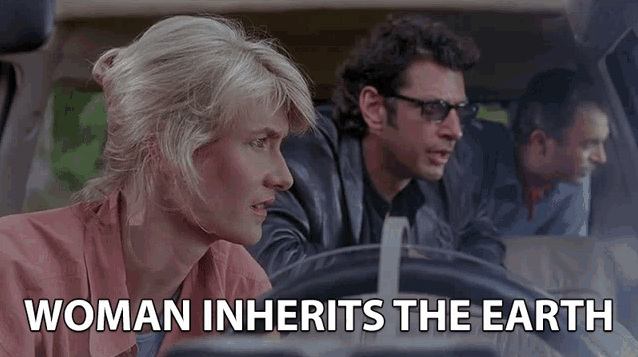Well, we roamed earth freely and doing only 4 hours of daily work to survive. And then came agriculture...
A Comm for Historymemes
A place to share history memes!
Rules:
-
No sexism, racism, homophobia, transphobia, assorted bigotry, etc.
-
No fascism, atrocity denial, etc.
-
Tag NSFW pics as NSFW.
-
Follow all Lemmy.world rules.
Banner courtesy of @setsneedtofeed@lemmy.world
Rofl that's not real. Survival is hard.
It was easier than what came after, but riskier too (Farming required 12+ hour days). Also if you remove the workers rights that exist today, the modern human can not comprehend how hard survival was even 100 years ago.
Eh.. it's hard now because we don't have the patterns or training or tools anymore. Previous people were well prepared.
Now, it was RISKY. People died all the time. But that doesn't mean they worked 20 hour days.
We don't have the tool, in 2025..... ok
Is this why I feel best when I only work 4 hours a day and have a nice afternoon nap?
Humans domesticated humans. https://www.science.org/content/article/early-humans-domesticated-themselves-new-genetic-evidence-suggests
Here's another thought.
Humans who took in wolves were at an advantage over their neighbors. Wolves made great watchdogs, so the humans could sleep better, and helped in hunting so everyone ate better. People who refused to let wolves live with them would have been less likely to reproduce.
Domesticating dogs changed the humans.
Let's just say everything changed each other. For the better? Who knows? My back hurts.
I'd say dogs/ wolves did their fair share domesticating us as well.
Cats as well.
If you store grain you get mice/rats, that's true even today(don't eat raw flour), which leads to cats.
Humans realized that fewer mice means more grain and left cats alone. But one theory is that families who let the cats hang around their home more had fewer instances of diseases carried by rodents, which further led humans to want cats to be around.
We were pretty well domesticated by the time they bothered showing up. Cats wouldn't put up with our barbaric and unmannered ways before we invented towns.
Yeah, I was more referencing how cats basically showed up and were all "become more domestic, and we'll move in and keep you safer".
It's telling that we find lions and tigers as cute as we do small cats. Means cat cuteness isn't a trait that was selected for in them so we'd let them stick around but it could have easily been the other way.
Well that explains why humanity are such bottoms. Source: religion
The truth always endures. It's durumable.
Was ancient wheat the same as wheat today or was it selectively pollinated to get what we have now?
Modern wheats are different, but so are modern humans.
How have humans changed.
Farming was a monumental change in human lifestyle, and has a whole host of genetic legacy.
https://www.sciencedaily.com/releases/2015/11/151123202631.htm
There's degrees of difference. Wheat goes through a new generation every year. Faster if you have a greenhouse. People go through a new generation every few decades. Wheat can thus change 20-30 times faster than people.
A century is, at minimum, 100 different "iterations" of the wheat genome. A century is ~3 "iterations" of humans.
Human selection of wheat would probably converge, as in humans would keep selecting the best wheat until it reaches some kind of optimal, steady state, then it would change slower as the selection process would be more about preserving the state.
It's been selected for some 5k years, give or take. One study found out that, starting from wild wheat, it'd take roughly 30 years to fully domesticate the crop. Bananas, maize, soy, almond and others that we eat are also very different from their wild variants
Mother nature couldn't make plastic, so she made man. Now, earth has plastic. Buh BYE, man..!

Clever girl...
Sorry about the mess... dead
Dave Graeber and David Wengrow would like a word…
Which one? I'll have it sent over right away.
I was just about to bring that book up! I'm reading it now and it's fascinating.
The Dawn of Everything for people who are interested.
Drawing on pathbreaking research in archaeology and anthropology, the authors show how history becomes a far more interesting place once we learn to throw off our conceptual shackles and perceive what’s really there. If humans did not spend 95 percent of their evolutionary past in tiny bands of hunter-gatherers, what were they doing all that time? If agriculture, and cities, did not mean a plunge into hierarchy and domination, then what kinds of social and economic organization did they lead to? The answers are often unexpected, and suggest that the course of human history may be less set in stone, and more full of playful, hopeful possibilities, than we tend to assume.
I really like how the first farmers were just "let's seed these banks that are flooded every season and wait, because we sure as fuck are NOT going to till the soil, fill it with manure and keep the weeds away, especially when I can just walk around for 5 minutes and get some stuff to eat"
